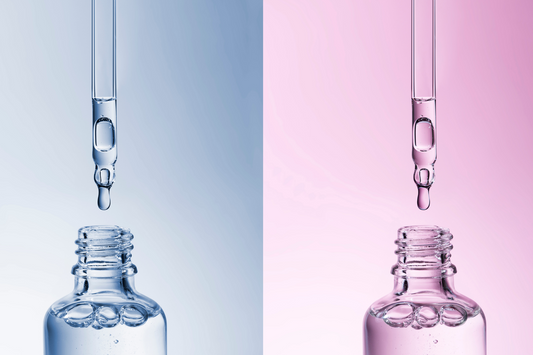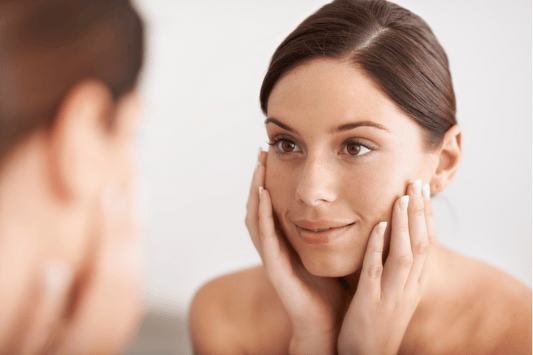Motherhood is a significant milestone in a woman’s life. While it's an incredibly special time, it comes with its own set of challenges (obviously). Oftentimes one big change involves re-evaluating your skincare routine and taking certain products out because they may be harmful to the breastfeeding infant.
Among these products is retinol, which has been hailed as the holy grail of all things skin, in the skincare space. New mothers often find themselves asking the question,“can I use retinol while breastfeeding?”. While it's definitely something they should discuss with their physician, in most cases, we would suggest they steer clear of retinol. Read on to find out why.
What is retinol anyway? Can I use it while breastfeeding?
Retinol is a Vitamin A derivative and belongs to the retinoid family of compounds. It gained popularity in the 1960’s when we figured out a way of artificially producing it. Owing to its versatility, retinol is often used for treating several skin concerns such as aging, fine lines, acne, psoriasis, cancer, rosacea etc. You get the picture. Retinol is often hailed as the holy grail, despite being over half a century old. It is widely available in the market in prescription and over-the-counter products such as serums and creams.
How does retinol work?
Retinol’s ability to improve the appearance of skin is attributed to its ability in increasing collagen production, among other mechanisms. According to studies, a decrease in collagen is directly linked to a decrease in skin elasticity and fullness. Retinol works partly by improving collagen, but it can also improve cell turnover by killing dead skin cells. It’s widely used by individuals wanting to improve the appearance of their skin; but for new mothers, things become more complicated. When breastfeeding, there are several studies that indicate that new mothers shouldn’t use retinol on their face, as it may be harmful to the breastfeeding child.
Why can’t I use retinol while breastfeeding?
Retinol is an excellent ingredient to treat several skin concerns, however new mothers find themselves in a pickle. Can you use retinol while breastfeeding? To short simple answer is it’s best to avoid it.
The reason being, the amount of vitamin A found in retinol-based products can potentially being passed on to the infant through breast milk. High levels of vitamin A can potentially be toxic, and therefore, new mothers should avoid using retinol while breastfeeding.
Furthermore, little knowledge is present of how retinol is broken down in the body after its absorbed through the skin, which means it's difficult to know exactly how much retinol is being passed onto the infant while breastfeeding. Therefore, as a safe bet, new mothers shouldn’t use retinol while breastfeeding altogether.
There are small pieces of evidence out there that discusses the link between retinol and its associated harmful effects to a breastfeeding child. According to this study, there have been 4 published cases of birth defects being traced back to topical tretinoin use - tretinoin is another vitamin A derivative, which is similar to retinol.
Additionally, regardless of whether you are a breastfeeding mother or not, the use of sunscreens while actively using retinol is a MUST. The skin becomes even more susceptible to damage caused by UV rays when retinol is being applied to it (since it improves skin cell turnover).
Sunscreens are important as they help protect against the risk of skin cancer and premature aging caused by UV rays. Therefore, it is highly, HIGHLY important to use sunscreens to protect the skin as a breastfeeding mother.
Alternatives to retinol while breastfeeding
Even though you may not want to use retinol while breastfeeding, there are alternative options present that you could consider incorporating into your skincare routines, such as:
Hyaluronic acid
Peptides
Vitamin C
Bakuchiol
Hyaluronic acid is great for providing a hydrating and plumping effect to the skin.
Peptides are a great alternative to use for getting bouncier and plump-looking skin.
Helps combat sun damage and improves the overall appearance of skin by lightening dark spots.
A safer, plant-form extract of retinol, which helps in treating skin concerns such as acne.
Becoming a new mother does not have to mean giving up on self-care! It is extremely important to have detailed conversations with your healthcare provider about which products work best for you as a breastfeeding mother. Play it safe, and congratulations!





